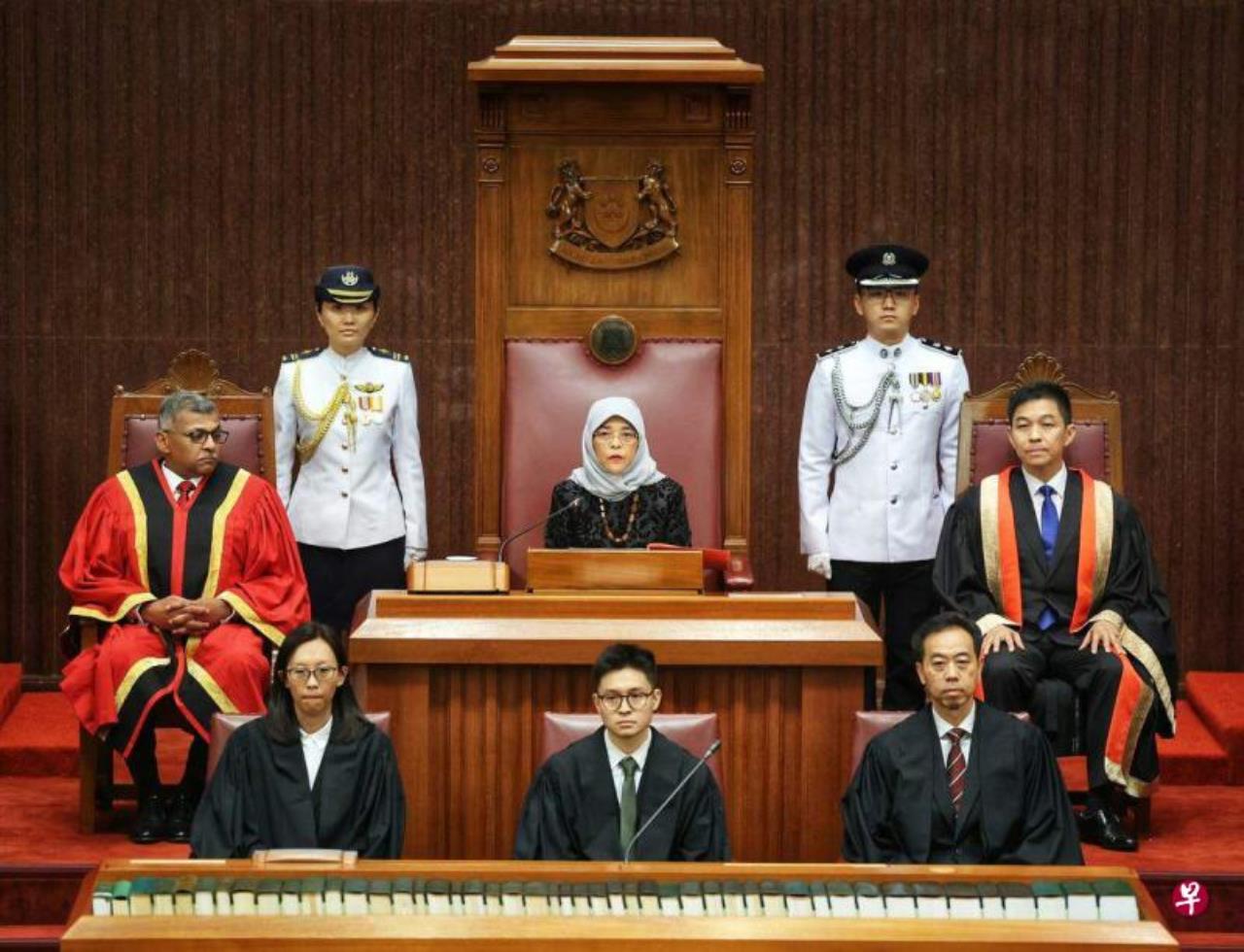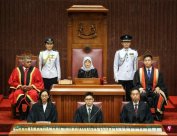
President Halima issued a government policy policy at the second session of the 14th Congress on April 10.It covers the priority processing matters of the remaining term of this government, including the definition of expanding the only use to cope with the risk of social flow stagnation.The government will also strengthen the social security network, build livable cities, and deepen the identity and common responsibility of Singaporeans.
The policy policy reflects the Singapore vision of the fourth -generation leader.On June 28 last year, the fourth -generation leadership team led by Deputy Prime Minister and Minister of Finance Huang Xuncai launched the "Singapore Give forward" campaign to review and update social contracts with the Chinese people, and to formulate a blueprint for Singapore in the next 10 years and afterwards.The governance policy read by the president is one of the results of the dialogue of "Singapore together".
After the 2020 election, the 14th Congress hosted by President Halima on August 24 of that year and read the government's first meeting policy.At that time, Singapore was in a period of crown disease.After more than three years of resistance, Singapore has gone out of the shadow of the epidemic. The performance of the fourth -generation leader in resistance has also been recognized and appreciated by most Chinese people.During the epidemic, they won the trust of the Chinese people, laying a foundation for implementing a new social contract and the vision of Singapore.
Update social contracts to deal with new challenges at home and abroad.In terms of peripheral factors, geopolitical contradictions have intensified, global supply chain interruptions, as well as the Russian and Ukraine War that affects the global economy and pushing height of inflation, which has led to the anxiety of Chinese people's work guarantee and rising living expenses.In the country, the problem of aging population is imminent. Slowing social flow and the enlarged income gap may lead to social anxiety.
Fortunately, Singapore's previous generation leader accumulated considerable financial reserves and social capital.The fourth -generation leader found the opportunity in the crisis when he was in crisis.The international environment is disturbing, and it is a big threat to this small country in Singapore, but it also highlights the advantages of Singapore's safe environment and regional hubs.During the epidemic, foreign investment continued to increase, and it has grown the economic resources required for the fourth -generation leader to update the social contract.
The distribution of social contracts involving interests and the use of limited resources, so there are many difficult choices in policy design.These tensions need to be properly dealt with, otherwise it may cause social contracts to fail and weaken the foundation of trust.
First of all, the principle of only use is to encourage people to be self -reliant, work hard and fully seize the opportunity, and keep flowing upward.However, over time, the rich children have more resources and opportunities, resulting in their advantages "hereditary" and growth of the elite mentality.
The government initially advocated the "tenderness is only useful" system, and encouraged successful people from the back to take care of those compatriots who fell behind.The fourth -generation leader further starts from the front end to ensure that the children of the disadvantaged group can start on the same starting line as the rich children at the beginning of school education.
President Halima is alerting to the country in the policy policy. It should not be involved in a "educational arms race" unknowingly, which eventually makes the whole society worse.However, the essence of only use is to encourage competition and get rewards from those who stand out from competition.It remains to be observed whether the children of the disadvantaged group will stimulate parents on the same starting line will stimulate parents' fear of losing and bring greater anxiety and educational competition.
Secondly, the tolerance proposed by the government is to use the principles to allow Chinese people to do their best. Everyone has the opportunity to maximize their talents and expertise to avoid the phenomenon of only a few winners.But this must be based on the corresponding reward system, including income.Theoretically, the sweat of the hawker is greater than the worker and should get greater remuneration.But in fact, under the pressure of inflation, Chinese people complained to the hawkers.
Third, a new social contract advocates tolerance society, and the government has increased its efforts to support vulnerable groups from all aspects.On the occasion of strengthening the Social Security Network, how to ensure that Chinese people fulfill their personal and collective responsibilities, avoid sliding to the welfare system, and weaken work ethics is a contradiction to create a tolerance society.
Fourth, with the inflow of foreign funds and talents, cultivating inclusive identity is the challenge of Singapore's cities.The essence of identity is different, which may lead to extra psychology, especially when Chinese people face the competition between foreign funds and talents.
Updating social contracts is a long -term job.For ordinary people, they obviously pay more attention to the people's livelihood issues, including living expenses, medical expenses, pensions, and reliability of public transportation.The organic connection between the vision of social contracts and the issue of people's livelihood will help consolidate the foundation and social capital of trust, so as to highlight the advantages of Singapore's little red dot in the turbulent world.


